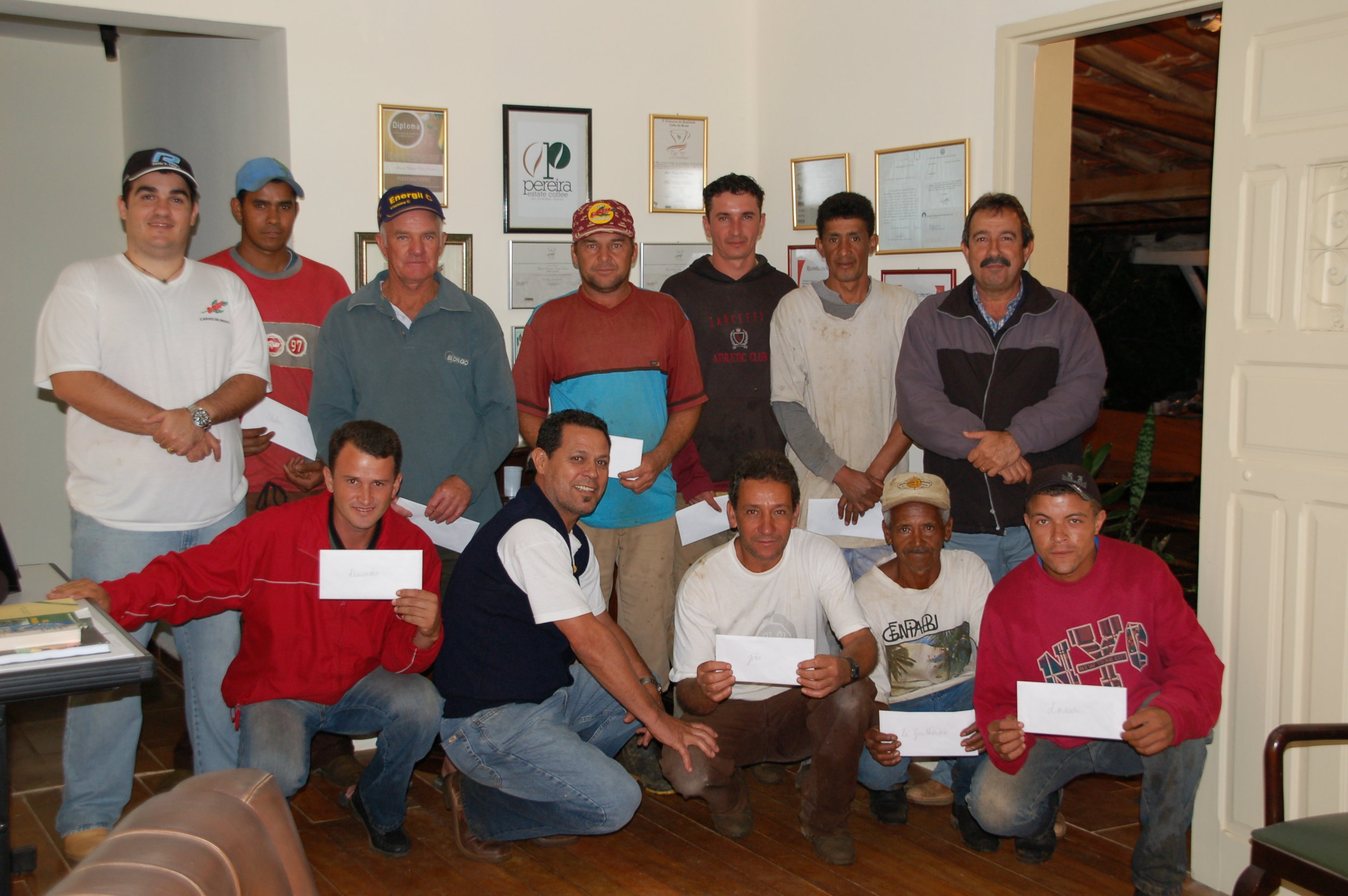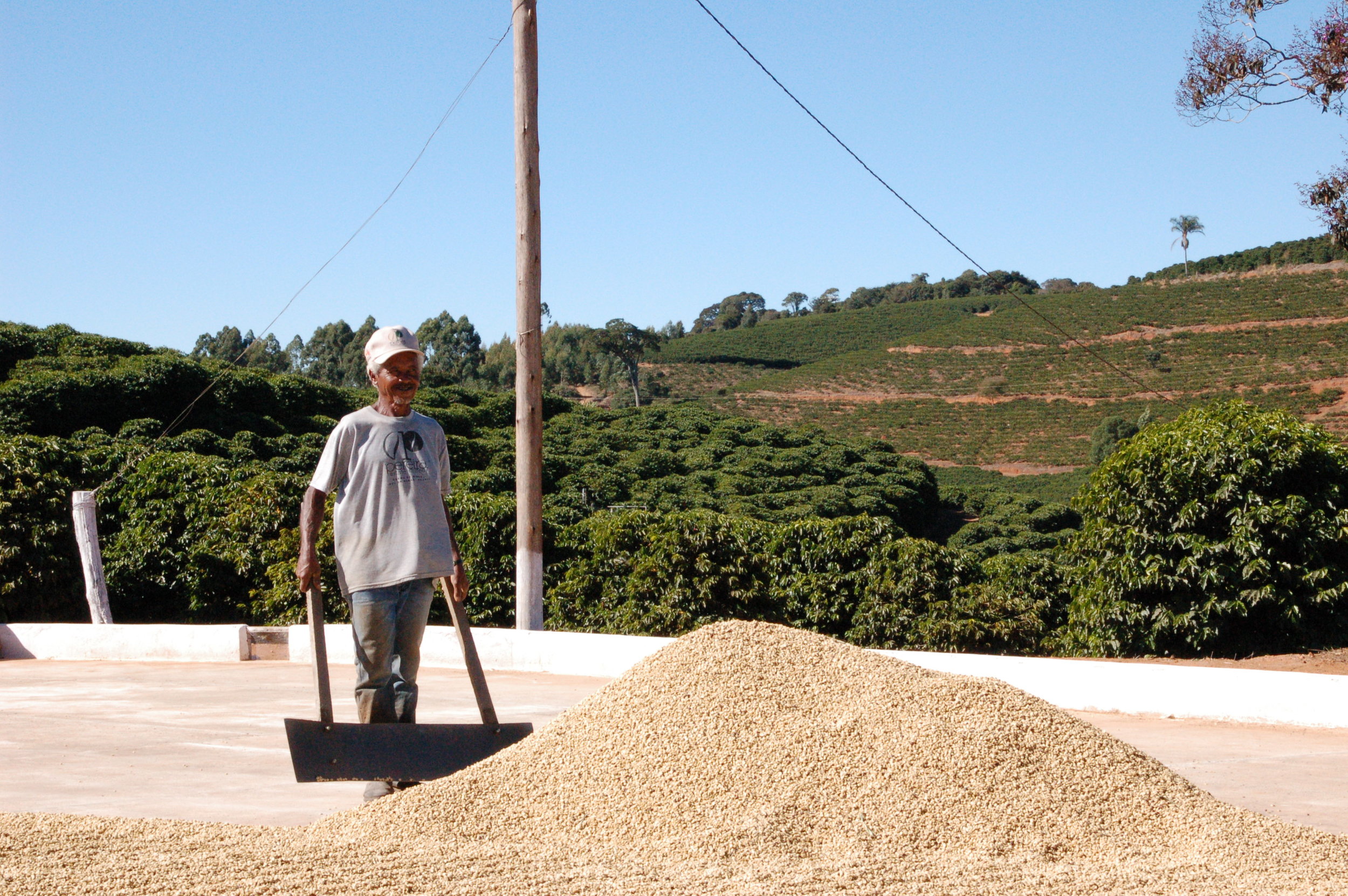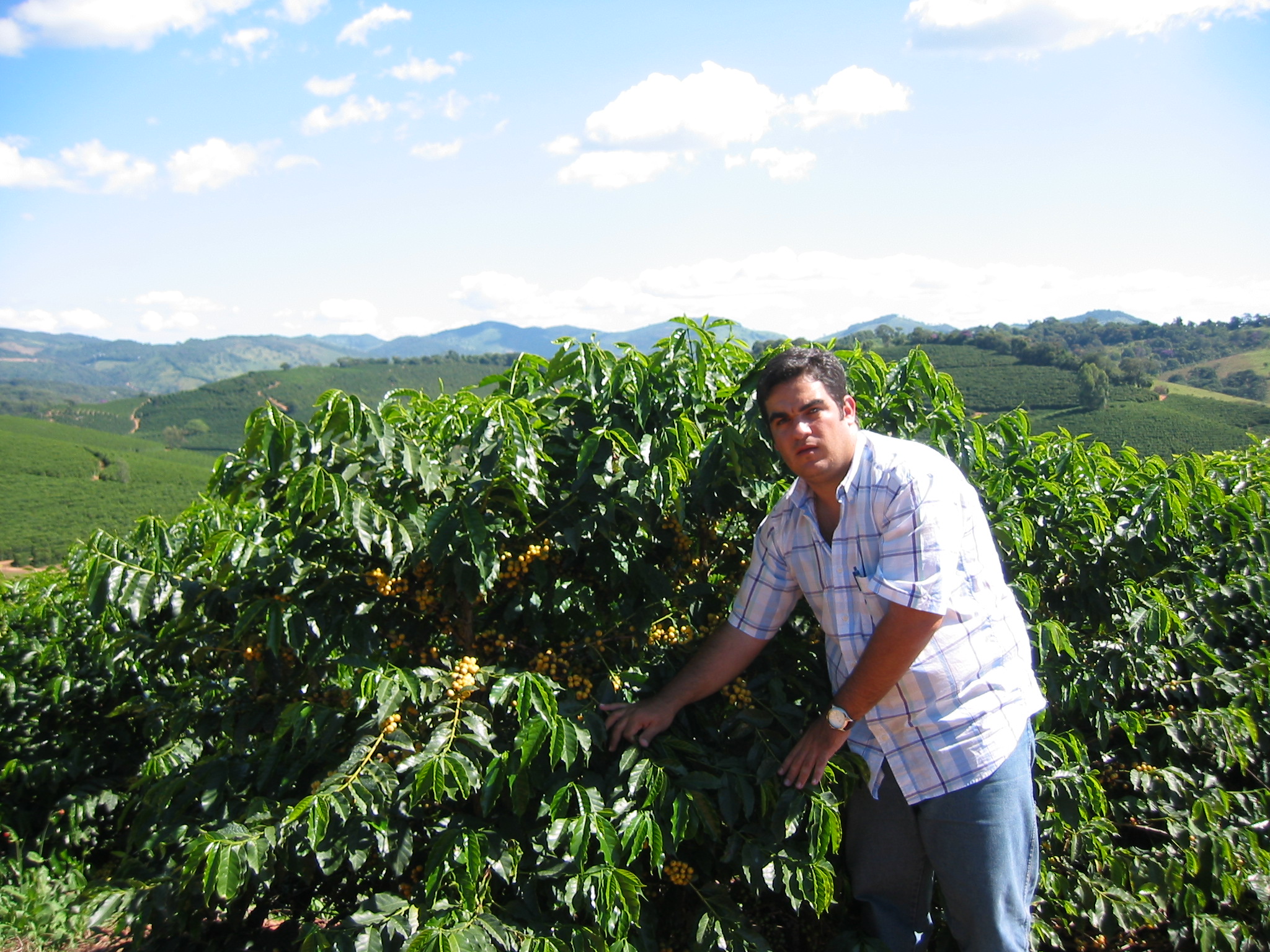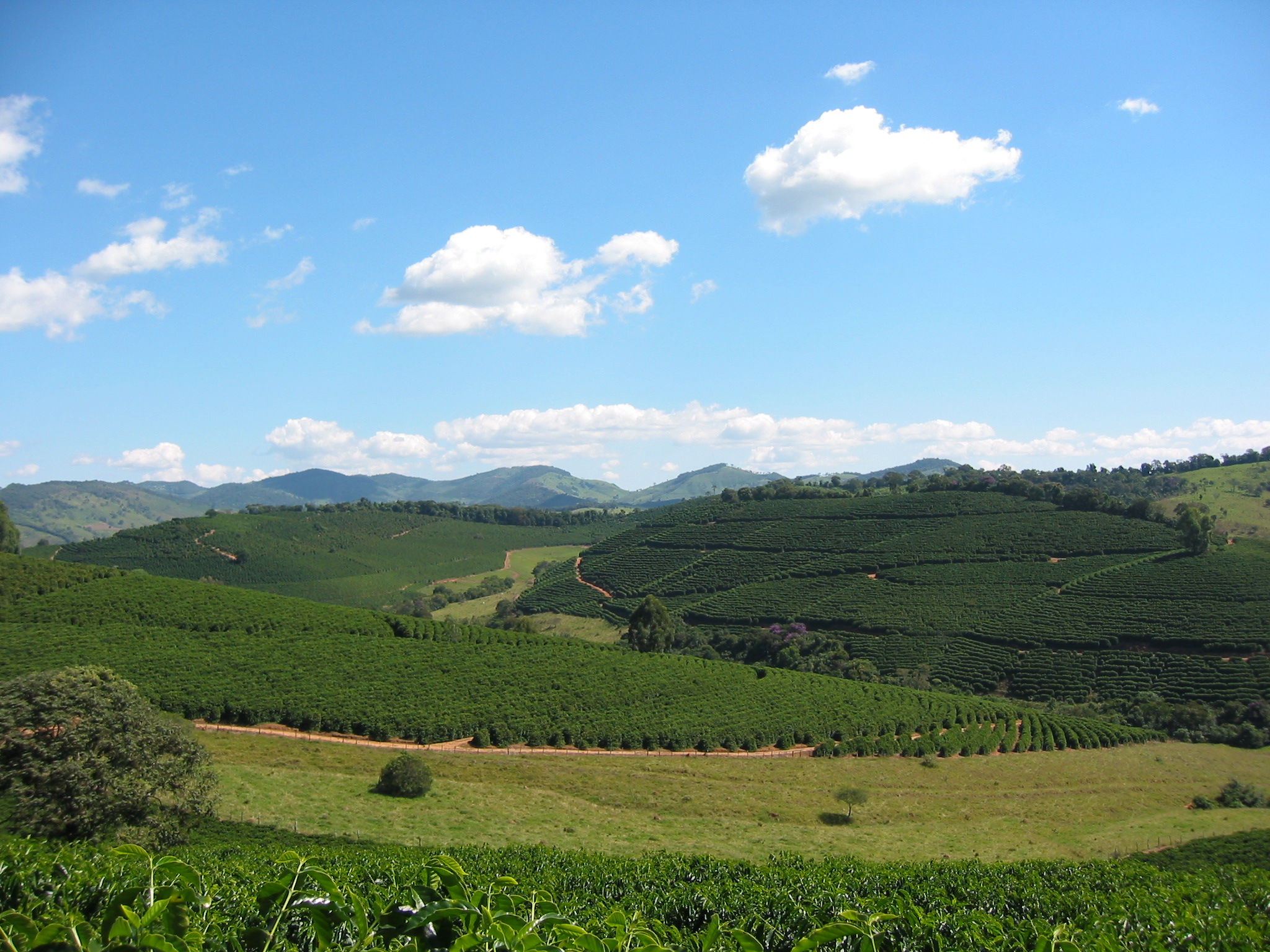Name: Pereira Sisters (formerly Fazenda Serrado) Total estate area (acre): 250 Altitude (masl): 1075-1229 Varietals: Bourbon, Acaiá, Mundo Novo, Catuaí and Catuaí
About
In 1971, Antonio Andrade Pereira Filho and Maria da Conceição Costa Pereira decided to invest in a farm of 90 acres in the city of Carmo de Minas, Minas Gerais. Antonio planted the first coffee seedlings and the couple started a family, raising two daughters: Maria and Maria Rogéria. Eventually the two women took over the running of the farm, along with their husbands, ushering in a new generation of coffee producers. With the eventual passing of Antonio, Maria and Maria Rogéria decided to continue running the farm together. Thus they changed the name of the farm from Serrado to Irmãs (Sisters) Pereira, ushering in a new spirit to their coffee production.
Irmas Pereira is perched in the high mountains of the South Minas Water Spa Circuit, near the towns of Lambari, Carmo de Minas and São Lourenço. The estate boasts great altitude, climate and dedicated management and workers. The coffee bushes grow in fertile mountain soil at altitudes ranging between 3,500 and 4,000 feet. These high altitudes favor slow ripening of cherries and permits selective picking; both decisive factors in producing exceptional coffees.
The estate utilizes top quality processing equipment: a state-of-the-art wet mill that recycles and reuses waste water, paved drying patios, mechanical driers and wooden silos for coffee to rest. However, the combination of these tools, combined with the exceptional climate and advanced agronomic techniques, would be wasted without the personal dedication of the estate’s owners and commitment the well-qualified team of approximately 35 employees.
New methods for Specialty coffees
With the new management, the family has invested in the production of specialty coffees and new processing methods.
Black honey parchment: Usually 100% of the mucilage is left, and during drying the cherries take on a distinctively dark color.
Double pass: Green (unripe) cherries are first separated from red and mature cherries in the washer. The mature cherries stay soaking in the tank for 12 hours and are then pulped.
Chuveirinho: After pulping, the coffee remains in a tank with cold water for more than 12 hours overnight and the next day they are sent to the drying area.
Unwashed Naturals: Green/unripe cherries are sorted out with the aid of a machine without any contact with water. Only mature cherries remain and these are then dried.
Honey: Between 50 – 100% of mucilage is left on the parchment. These cherries then become “red” or “black”, depending on the drying conditions.
Background to Carmo de Minas
Over the past decade, Brazil as a nation has experienced fantastic economic growth in every field, with higher purchasing power and an ever-increasing standard of living. At least 20 million people have risen above the poverty-line and the middle-class has grown by 40 million in a relatively few number of years. The value of labor has also increased: Brazil now has full employment and rising wages. All of this naturally affects the cost of coffee production in general, but it especially affects labor-intensive coffee (read: new processing methods with even higher costs). In some cases it is difficult to find labor at all, especially for farm work. Incentives must be strengthened in order to keep people at work within coffee. And as the world’s largest producer of coffee, Brazilian coffee is the main component of blends all over the world. Thus, the price paid for Brazilian coffee is a reflection of the fact that coffee from here is considered a base product. In parallel with fluctuations in world markets and in the pricing of coffee in general, the specialty coffee segment has established its own price dynamics.
Although coffee is an old commodity in Brazil, over the past 10-12 years, the country has been showcasing its very best coffee and it has only been in the last 7-8 years that coffee in the Carmo de Minas municipality has been particularly noteworthy.
Carmo is one village among twenty in the Mantiqueira region, south of the Minas Gerais county, in Sul de Minas. In the same way that Burgundy is an important name in the French world of wine, Carmo de Minas has become a destination in the Brazilian coffee world. Some of its distinction can be attributed to topographic and climatic conditions, but as always, there are people engaged – from picking coffee cherries to processing; both crucial to the quality of the product. People make the difference.
Although many of the farms in this area have won awards and garnered attention in recent years, there have not really been radical changes in farming and processing methods. Not even in terms of picking. We believe that the area has achieved its status with a little bit of luck, good growing conditions, good plant material – mostly Bourbon – but otherwise quite ordinary craft. However, good coffee has come out of all this and as a result, Carmo has experienced a “clean sweep” in Cup of Excellence competitions. But the quality can be even better, as well as the amount of the best coffee increased.
Jacques Pereira Carneiro represents the new generation in Carmo. Together with cousin Luis Paulo (who currently is president of Brazil Specialty Coffee Association (BSCA)), he runs the coffee export firm Carmo Coffees. These two men represent a 5th generation of coffee farmers and they collectively oversee 12 farms and 6 processing stations – altogether owned by their Pereira family. This family is also members of the cooperative Coca Rive, which offers its members courses on taste evaluation, distribution of fertilizer and storage facilities. Coca Rive has 400 members and is the smallest of the smallest cooperatives in the Carmo region, with its 8000 coffee farms. Previously Coca Rive worked almost exclusively with commercial coffee in this area and a few years ago it was a challenge to fill even one container (300 bags) of specialty coffee. Last year Carmo Coffees sold 150 containers of coffee over 80-points. We at CCS expect true specialty coffee from 86-points, but know that this proportion is also increasing in Carmo.
Carmo’s reputation is so well established that there is an ever-increasing demand for more coffee of their quality. Carmo Coffees does not just work with its own family’s production; it works hard to provide coffee from farms outside the family’s, including coffee from other districts. Pedralva, for example, is just a few miles from Carmo de Minas and many of the farms here are good, with altitudes up to 1400 meters above sea level. The work now is for a few farmers to push the idea of working a little differently to achieve better quality. With higher prices in the specialty coffee segment comes the motivation to do better than before. According to
Jacques, this change can be facilitated, but the first challenge is to pick a technique. On top of this are the added associated costs. Historically, the picking technique has been picking the coffee bush clean (stripping) during one picking and one harvesting season. Most people do this and even use partially mechanized equipment to do the job, which is more time-effective. But to get the sweetest coffee, you have to pick the sweetest, ripest cherries.
Minimum wage has increased to about $500 per month and although this is a low salary on any scale, these wages mean that the work of selective hand-picking coffee cherries represents up to 2/3 of the total cost of coffee production, even when coffee is sold at a 100% premium over commodity coffee.






